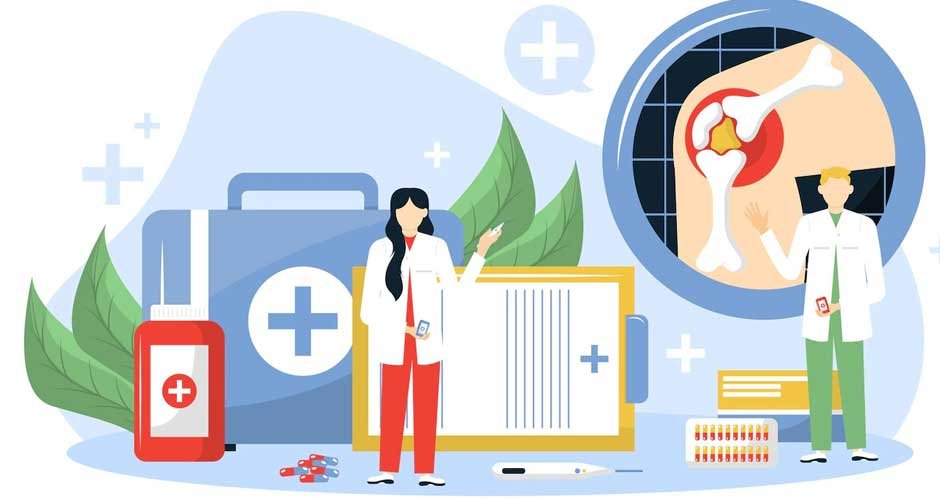In today’s fast-paced world, medical essentials – Nobles Health Care Product Solutions play a crucial role in ensuring the health and well-being of individuals. These essentials encompass a wide range of products, services, and practices that are essential for maintaining and promoting good health. From basic supplies such as medications and first aid kits to advanced medical technologies, understanding the meaning of medical essentials is vital for both healthcare professionals and the general public. In this article, we will explore the different aspects of medical essentials and their significance in healthcare.
Defining Medical Essentials
Medical essentials can be broadly defined as the fundamental components necessary for diagnosing, treating, and preventing illnesses and injuries. They encompass various categories, such as pharmaceuticals, medical devices, personal protective equipment (PPE), diagnostic tools, and healthcare services. Medical essentials vary depending on the context and level of healthcare required.
For instance, in a household setting, first aid kits and over-the-counter medications can be considered medical essentials, whereas, in a hospital, sophisticated medical equipment like ventilators and surgical instruments become essential.
Pharmaceuticals: The Pillars of Medical Treatment
Pharmaceuticals form a cornerstone of medical essentials. These are drugs and medications developed to prevent, treat, or manage various health conditions. From antibiotics that combat bacterial infections to antiviral drugs that target viral diseases, pharmaceuticals have revolutionized healthcare by significantly improving patient outcomes. They are formulated based on extensive research, clinical trials, and regulatory approvals to ensure their safety and efficacy.
Medical Devices: Advancing Diagnostics and Treatment
Medical devices are another crucial category of medical essentials. These devices range from simple tools like thermometers and blood pressure monitors to complex equipment such as MRI machines and robotic surgical systems. Medical devices aid in diagnosing diseases, monitoring patient conditions, and delivering effective treatments. They are designed to be accurate, reliable, and user-friendly, ensuring that healthcare professionals can provide the best possible care to their patients.
Personal Protective Equipment (PPE): Safeguarding Healthcare Workers
The ongoing COVID-19 pandemic has underscored the importance of personal protective equipment (PPE) in healthcare settings. PPE includes items such as gloves, masks, goggles, face shields, and gowns, which protect healthcare workers from exposure to infectious agents. PPE not only safeguards the healthcare workforce but also prevents the transmission of diseases from patients to healthcare providers and vice versa. It is a critical component in infection control protocols and ensures the safety of both patients and healthcare professionals.
Diagnostic Tools: Unveiling the Secrets of Health
Diagnostic tools are essential in identifying and understanding various health conditions. These tools can be as simple as a stethoscope used by a physician to listen to a patient’s heartbeat or as complex as molecular imaging techniques like positron emission tomography (PET) scans. Diagnostic tools enable healthcare providers to make accurate diagnoses, monitor disease progression, and assess treatment effectiveness. They are indispensable in the early detection of diseases, allowing for timely interventions and better patient outcomes.
Healthcare Services: Delivering Comprehensive Care
Medical essentials are not limited to tangible products alone. Healthcare services form an integral part of the medical essentials landscape. These services encompass a wide range of activities, including primary care, specialized treatments, emergency services, preventive care, and rehabilitative programs. Access to quality healthcare services ensures that individuals receive timely and appropriate care, leading to better health outcomes and improved quality of life.
The Significance of Medical Essentials
Understanding the meaning of medical essentials is vital for multiple reasons. Firstly, they are crucial for effective healthcare delivery. Healthcare providers rely on medical essentials to accurately diagnose diseases, deliver appropriate treatments, and promote patient recovery. Without access to these essentials, the quality of healthcare would be compromised, leading to increased morbidity and mortality rates.
Secondly, medical essentials empower individuals to take charge of their health. By having access to necessary medications, diagnostic tools, and self-care products, individuals can actively participate in managing their well-being. Medical essentials enable early detection of diseases, prompt self-treatment of minor ailments, and informed decision-making regarding healthcare choices.
Furthermore, medical essentials play a pivotal role in emergency situations. Whether it’s a natural disaster, a disease outbreak, or a public health crisis, medical essentials become even more critical. They ensure that healthcare systems are prepared to respond effectively to emergencies, protect the population, and save lives.
Medical essentials are the foundation of modern healthcare. Understanding the significance of medical essentials is crucial for healthcare professionals, policymakers, and individuals alike. By recognizing their importance, we can strive towards ensuring equitable access to medical essentials, enhancing healthcare delivery, and ultimately improving the overall well-being of individuals and communities.






